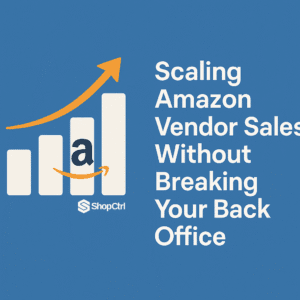The Shift: From Wholesale to Direct-to-Consumer (D2C)
For decades, manufacturers relied almost entirely on wholesale, distribution networks, and retail partnerships to get their products into the hands of consumers. But times have changed, and so have expectations!Today, brands that once operated quietly behind the scenes are stepping into the spotlight. Why? Because Direct-to-Consumer (D2C) isn’t just a buzzword. It’s a powerful, scalable model that gives manufacturers control, insight, and flexibility they’ve never had before.
This shift isn’t about cutting out the middleman, it’s about building resilience and opportunity into your business model.
Why D2C is Particularly Powerful for Established Brands & Manufacturers
Many well-known brands already have an edge in traffic and recognition. Customers actively search for them online, even without marketplace ads. That’s organic traffic waiting to be converted, without paying platform commissions.A D2C webstore becomes a strategic channel that balances your overall e-commerce landscape, reduces costs, and increases profitability.
What Makes D2C a Strategic Move for Manufacturers?

1. Higher Margins & Lower Dependency
Selling through traditional retail and distribution channels often comes with steep margins, lack of control, and limited visibility.
With a D2C model, manufacturers can own the entire transaction, keeping more of the margin and reducing reliance on third-party sellers and marketplaces.
2. Control Over Brand & Customer Experience
In wholesale or retail models, the end customer relationship belongs to the reseller. In D2C, you own it.
You control how your products are presented, how support is handled, and how your brand is experienced online—from first click to delivery.
3. First-Party Data You Can Actually Use
D2C allows you to collect data directly from your customers.
This first-party data becomes a goldmine for product innovation, marketing strategy, and customer loyalty.
4. Faster Go-to-Market & Product Experimentation
Want to launch a limited edition? Test a new subscription model? Bundle products in a new way?
D2C gives you the speed and freedom to do it, without waiting for a retailer or marketplace to approve it.
With ShopCtrl, you can launch a D2C strategy without disrupting your B2B workflows, and scale it confidently across regions and platforms.
How ShopCtrl Makes D2C Work at Scale
We help manufacturers and enterprise brands build D2C operations that plug directly into their ERP, warehouse, and carrier systems. With ShopCtrl, you get:
Real-time order sync with ERP systems like SAP or Dynamics
Automated fulfillment, carrier label generation, and tracking
Centralized inventory, order status, and customer communications
Multi-country, multi-language, multi-channel support
Built-in automation to handle order-to-cash with fewer manual tasks
D2C Isn’t a Trend. It’s a Long-Term Advantage.
As e-commerce evolves, brands that embrace D2C now are setting themselves up for a future of flexibility, customer insight, and direct growth.
With the right infrastructure, the move from manufacturer to direct seller isn’t just possible, it’s powerful.



